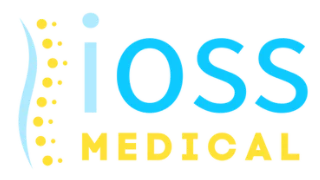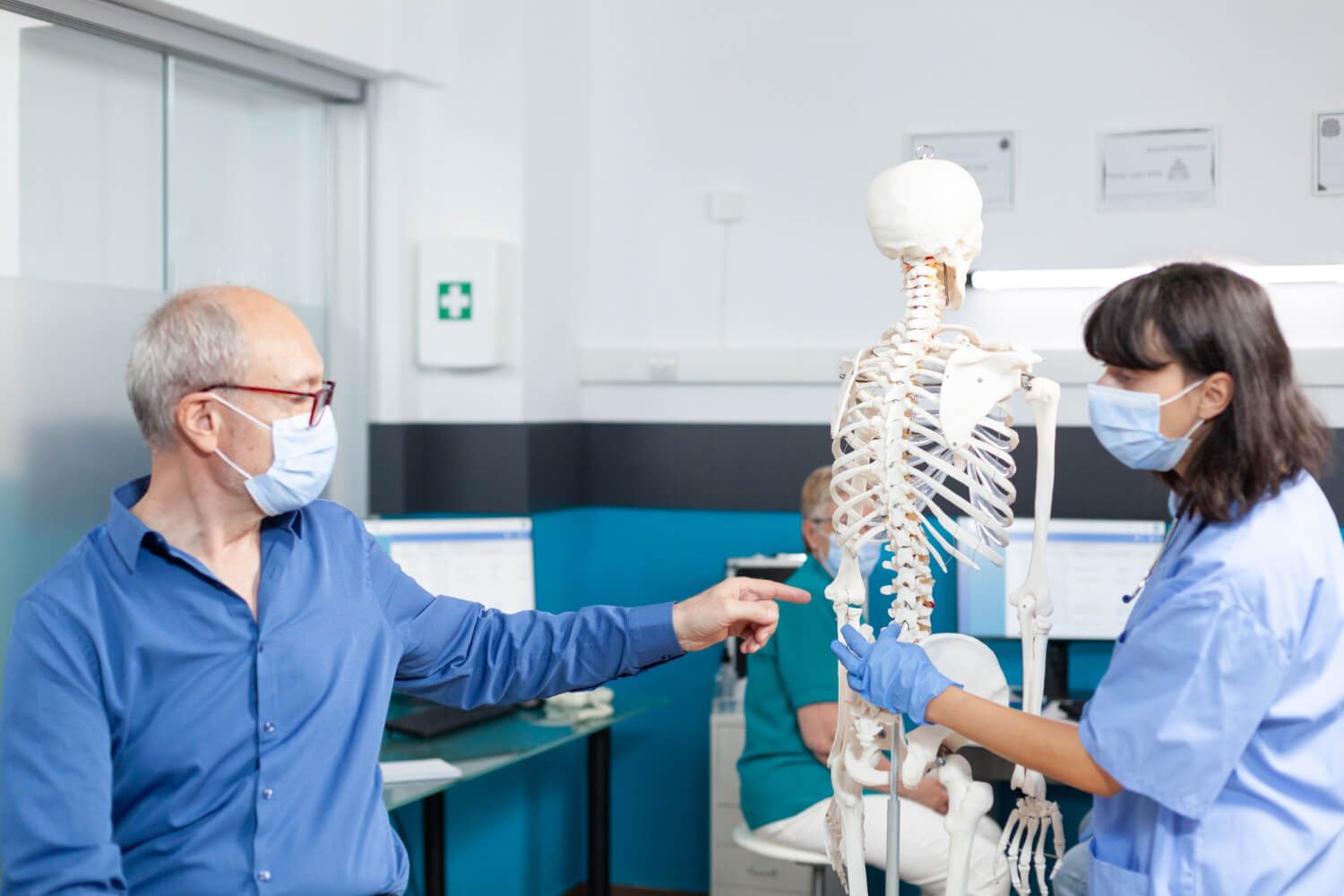Managing spinal cord injuries requires expert care to address pain and enhance quality of life. At the Institute of Orthopedics, Spine, & Sports in Edison, NJ, we specialize in non-surgical approaches, with a strong emphasis on injection therapies. These therapies are designed to relieve pain, reduce inflammation, and support the body’s natural healing process.
Our experienced team utilizes advanced techniques and state-of-the-art equipment to deliver tailored treatment plans. Injection therapies provide a minimally invasive and effective method for managing spinal cord injuries. To schedule an appointment and start your journey toward recovery, call us at (973) 922-9515. Our dedicated team is here to support you every step of the way.
Causes of Spinal Cord Injuries
Spinal cord injuries can be caused by a variety of factors, often categorized into traumatic and non-traumatic causes:
Traumatic Causes of Spinal Cord Injuries
Spinal cord injuries often result from traumatic events, with motor vehicle accidents being the most common cause. These high-impact collisions can force the spine to bend, twist, or compress, leading to significant damage. Falls, particularly among older adults, also pose a serious risk, as they can cause fractures or dislocations of the vertebrae, which may subsequently injure the spinal cord.
Sports injuries, especially in high-contact sports like football, rugby, and gymnastics, are another common cause due to the potential for high-impact collisions or falls. Acts of violence, such as gunshot wounds or stabbings, can directly harm the spinal cord or cause secondary injuries through bone fragments or swelling.
Additionally, workplace accidents involving heavy lifting, operating machinery, or working at heights increase the likelihood of sustaining a spinal cord injury.
Non-Traumatic Causes of Spinal Cord Injuries
Not all spinal cord injuries are caused by trauma; some arise from medical conditions or other non-traumatic factors. Degenerative disc disease is one such cause, where the discs between the vertebrae wear down over time, potentially leading to herniated discs that compress the spinal cord.
Spinal tumors, whether benign or malignant, can also develop within or near the spinal cord, leading to compression and subsequent injury. Infections, such as spinal tuberculosis or abscesses, can result in inflammation and damage to the spinal cord.
Vascular disorders, like spinal cord infarction, occur when blood flow to the spinal cord is disrupted, causing significant harm. Additionally, autoimmune diseases like multiple sclerosis can lead to spinal cord injury as the immune system mistakenly attacks the spinal cord.

Symptoms of Spinal Cord Injuries
The symptoms of a spinal cord injury can vary widely depending on the severity and location of the injury. The spinal cord is divided into different sections: cervical (neck), thoracic (upper back), lumbar (lower back), and sacral (pelvic region). The location of the injury often determines the extent of the symptoms.
Common Symptoms Include:
- Loss of Movement: Depending on the level of injury, a patient may experience partial or complete paralysis of the limbs. Cervical injuries often result in quadriplegia (paralysis of all four limbs), while injuries lower in the spine may result in paraplegia (paralysis of the lower body).
- Altered Sensation: Patients may experience numbness, tingling, or loss of sensation in certain parts of the body.
- Pain or Intense Stinging Sensations: Neuropathic pain, often described as a burning or stinging sensation, can occur below the level of the injury.
- Spasms and Exaggerated Reflexes: Involuntary muscle spasms and heightened reflexes are common in individuals with spinal cord injuries.
- Bladder and Bowel Control Issues: Damage to the spinal cord can affect the nerves that control the bladder and bowel, leading to incontinence or retention.
- Respiratory Issues: Injuries in the cervical region can affect the muscles required for breathing, potentially necessitating ventilatory support.
- Sexual Dysfunction: Depending on the level and severity of the injury, sexual function may be impacted.
Diagnosing Spinal Cord Injuries
Accurate diagnosis is crucial for determining the appropriate course of treatment for spinal cord injuries. At the Institute of Orthopedics, Spine, & Sports in Edison, NJ, we utilize advanced diagnostic tools to assess the extent of the injury.
Diagnostic Methods
Diagnosing spinal cord injuries involves a combination of physical examinations and advanced imaging studies. During a physical examination, the healthcare provider thoroughly assesses the level of injury by evaluating muscle strength, reflexes, and sensory function. Imaging studies play a crucial role in obtaining a detailed view of the spine and surrounding structures.
Magnetic Resonance Imaging (MRI) is often the preferred modality as it provides comprehensive images of the spinal cord, nerve roots, and soft tissues, making it particularly effective in identifying conditions like herniated discs, tumors, and other non-traumatic causes.
Computed Tomography (CT) scans offer detailed cross-sectional images of the spine, which are invaluable in detecting fractures, bone dislocations, and other traumatic injuries.
X-rays are commonly used to identify fractures, dislocations, and other bone-related issues within the spine. In addition to imaging, electrophysiological tests such as somatosensory evoked potentials (SSEPs) and electromyography (EMG) can be employed to assess the electrical activity of the spinal cord and nerves, providing further insights into the extent of the injury.

Injection Therapies for Spinal Cord Injury
At the Institute of Orthopedics, Spine, & Sports in Edison, NJ, we offer a range of injection therapies designed to alleviate symptoms and improve function in patients with spinal cord injuries. These therapies are non-surgical options aimed at managing pain, reducing inflammation, and promoting healing.
Epidural Steroid Injections
Epidural steroid injections are a common treatment designed to deliver anti-inflammatory steroids directly into the epidural space surrounding the spinal cord and nerves. The primary purpose of these injections is to reduce inflammation, which helps alleviate pain and improve mobility. The procedure is conducted under fluoroscopic (X-ray) guidance to ensure the precise delivery of the medication. By minimizing inflammation, these steroids help relieve pressure on the spinal cord and nerves, offering significant pain relief.
Nerve Root Blocks
Nerve root blocks are targeted injections aimed at specific nerve roots that may be compressed or irritated due to a spinal cord injury. The main objective of this treatment is to reduce pain and inflammation along the affected nerve pathway. During the procedure, a combination of a local anesthetic and a corticosteroid is injected near the problematic nerve root. The local anesthetic provides immediate pain relief, while the corticosteroid works overtime to reduce inflammation.
Intrathecal Pump Therapy
For patients suffering from severe, chronic pain that has not responded to other treatments, intrathecal pump therapy offers a viable option. This method involves delivering medication directly into the cerebrospinal fluid surrounding the spinal cord. The procedure includes the surgical implantation of a small pump under the skin, which continuously administers medication to the spinal cord through a catheter. This approach allows for lower doses of medication with fewer systemic side effects compared to oral medications.
Platelet-Rich Plasma (PRP) Therapy
Platelet-rich plasma (PRP) therapy is an innovative treatment that utilizes the patient’s own blood to promote healing and tissue regeneration. The process involves drawing blood from the patient, processing it to concentrate the platelets, and then injecting the concentrated platelets into the injured area around the spinal cord. The growth factors present in the platelets enhance the body’s natural healing processes and help reduce inflammation, making PRP therapy a valuable option for spinal cord injury treatment.
Stem Cell Injections
Stem cell therapy is an emerging treatment that shows promise in repairing and regenerating damaged tissues in patients with spinal cord injuries. The process involves harvesting stem cells from the patient’s bone marrow or adipose tissue, processing them, and then injecting the stem cells into the area of injury. These cells have the potential to differentiate into various types of cells, aiding in the repair of damaged spinal cord tissue. Stem cell injections offer hope for improving function and reducing symptoms in individuals with spinal cord injuries.
Contact Us
To make an appointment, please call us at (973) 922-9515 or book online. For any queries, you can email us at iossmedical@gmail.com. Visit our Edison branch at 259 Talmadge Road, Edison, NJ 08817 for in-person consultations and care.

